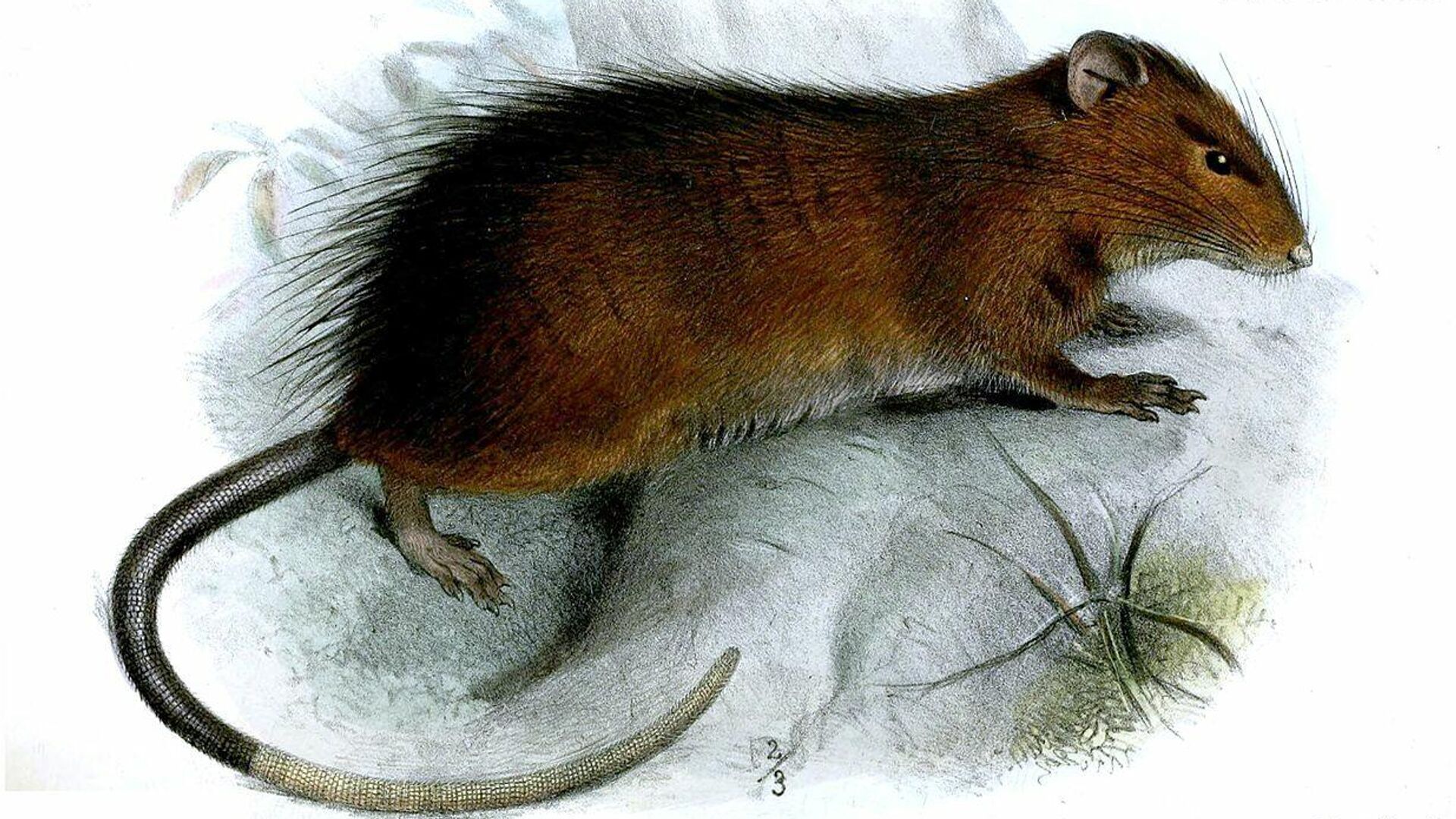https://sputnikglobe.com/20220311/not-quite-a-dinosaur-scientists-closer-to-resurrecting-extinct-christmas-island-rat-1093780773.html
Not Quite a Dinosaur: Scientists Closer to Resurrecting Extinct Christmas Island Rat
Not Quite a Dinosaur: Scientists Closer to Resurrecting Extinct Christmas Island Rat
Sputnik International
Scientists remain at loggerheads over de-extinction, which is nothing more than the process of generating an organism that either resembles or looks exactly... 11.03.2022, Sputnik International
2022-03-11T13:59+0000
2022-03-11T13:59+0000
2022-03-11T13:59+0000
copenhagen
scientists
genes
genome
animal
study
researchers
https://cdn1.img.sputnikglobe.com/img/07e6/03/0b/1093769369_7:45:1242:740_1920x0_80_0_0_5fa5d2068a797316a8741d3a6358a6c0.jpg
Resurrecting prehistoric species, such as dinosaurs and mammoths, in a process called de-extinction may certainly blow ordinary people's mind, but what about more recently extinct creatures? A team of palaeontologists is currently working to resurrect the Christmas Island rat, which was wiped out from its isle home in the Indian Ocean more than a century ago.In a study published by the journal Current Biology, the researchers explained that they had managed to sequence the extinct rat's DNA and map it to some of the animal's closest living relatives, such as the Norway brown rat.The study revealed that although the scientists have already recovered 95% of the animal's genome, the missing 5% may considerably complicate the de-extinction process.Tom Gilbert, a geneticist at the University of Copenhagen and a co-author of the research, stressed that he was "interested in how easy or hard will de-extinction by [DNA] editing be".He added that in the study, the researchers also "computationally came up with an idea of what we think might go wrong" in the course of de-extinction.Touching upon the missing 5% related to the animal's olfaction, Gilbert made it clear that "with current technology, it may be completely impossible to ever recover the full sequence, and therefore it is impossible to ever generate a perfect replica of the Christmas Island rat".Gilbert also said that hefty sums of money spent on de-extinction may be put to better use on existing conservation programmes for living species."I think it’s a fascinating idea in technology, but one has to wonder if that's the best use of money as opposed to keeping the things alive that are still here", he claimed.Let's stay in touch no matter what! Follow our Telegram channel to get all the latest news: https://t.me/sputniknewsus
copenhagen
Sputnik International
feedback@sputniknews.com
+74956456601
MIA „Rosiya Segodnya“
2022
Oleg Burunov
https://cdn1.img.sputnikglobe.com/img/07e4/09/0b/1080424846_0:0:2048:2048_100x100_80_0_0_3d7b461f8a98586fa3fe739930816aea.jpg
Oleg Burunov
https://cdn1.img.sputnikglobe.com/img/07e4/09/0b/1080424846_0:0:2048:2048_100x100_80_0_0_3d7b461f8a98586fa3fe739930816aea.jpg
News
en_EN
Sputnik International
feedback@sputniknews.com
+74956456601
MIA „Rosiya Segodnya“
Sputnik International
feedback@sputniknews.com
+74956456601
MIA „Rosiya Segodnya“
Oleg Burunov
https://cdn1.img.sputnikglobe.com/img/07e4/09/0b/1080424846_0:0:2048:2048_100x100_80_0_0_3d7b461f8a98586fa3fe739930816aea.jpg
copenhagen, scientists, genes, genome, animal, study, researchers
copenhagen, scientists, genes, genome, animal, study, researchers
Not Quite a Dinosaur: Scientists Closer to Resurrecting Extinct Christmas Island Rat
Scientists remain at loggerheads over de-extinction, which is nothing more than the process of generating an organism that either resembles or looks exactly like an extinct species. Some point to ethical issues, saying that money spent on the process could have been allocated for preserving existing animals.
Resurrecting prehistoric species, such as
dinosaurs and mammoths, in a process called de-extinction may certainly blow ordinary people's mind, but what about more recently extinct creatures? A team of palaeontologists is currently working to resurrect the Christmas Island rat, which was wiped out from its isle home in the Indian Ocean more than a century ago.
In a study published by the journal Current Biology, the researchers explained that they had managed to sequence the extinct rat's DNA and map it to some of the animal's closest living relatives, such as the Norway brown rat.
The study revealed that although the scientists have already recovered 95% of the animal's genome, the missing 5% may considerably complicate the de-extinction process.
Tom Gilbert, a geneticist at the University of Copenhagen and a co-author of the research, stressed that he was "interested in how easy or hard will de-extinction by [DNA] editing be".
He added that in the study, the researchers also "computationally came up with an idea of what we think might go wrong" in the course of de-extinction.
Gilbert praised the efforts by his colleagues to obtain almost all of the rodent's genes, which he said is "the perfect case because when you sequence the genome, you have to compare it to a really good modern reference".
Touching upon the missing 5% related to the animal's olfaction, Gilbert made it clear that "with current technology, it may be completely impossible to ever recover the full sequence, and therefore it is impossible to ever generate a perfect replica of the Christmas Island rat".
"It is very, very clear that we are never going to be able to get all the information to create a perfect recovered form of an extinct species. There will always be some kind of hybrid", the geneticist pointed out.
Gilbert also said that hefty sums of money spent on de-extinction may be put to better use on existing conservation programmes for living species.
"I think it’s a fascinating idea in technology, but one has to wonder if that's the best use of money as opposed to keeping the things alive that are still here", he claimed.
Let's stay in touch no matter what! Follow our Telegram channel to get all the latest news: https://t.me/sputniknewsus 



